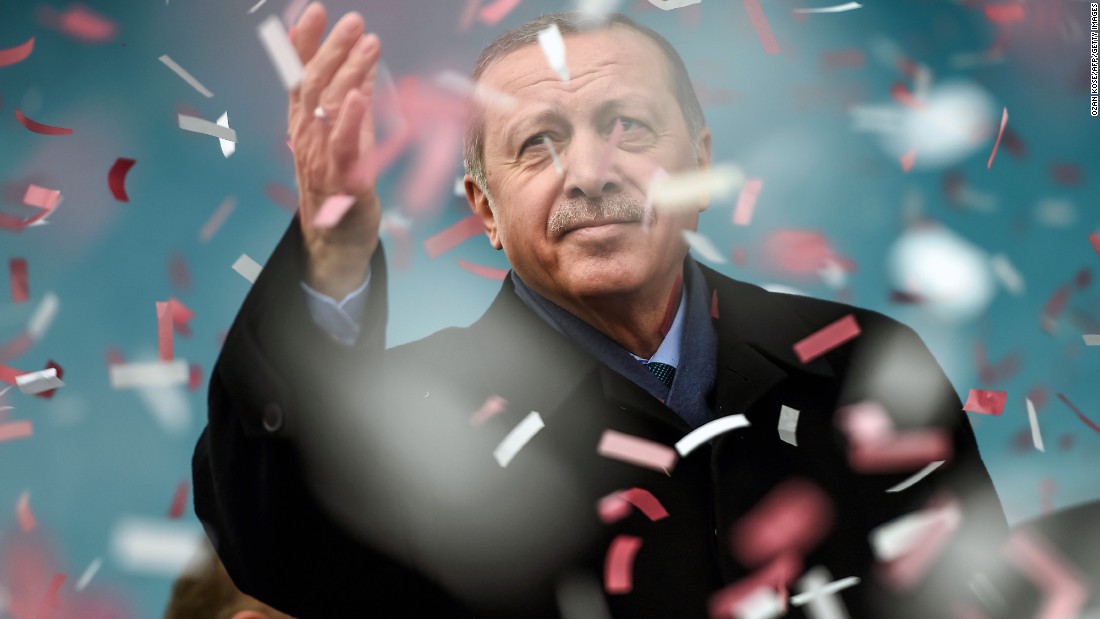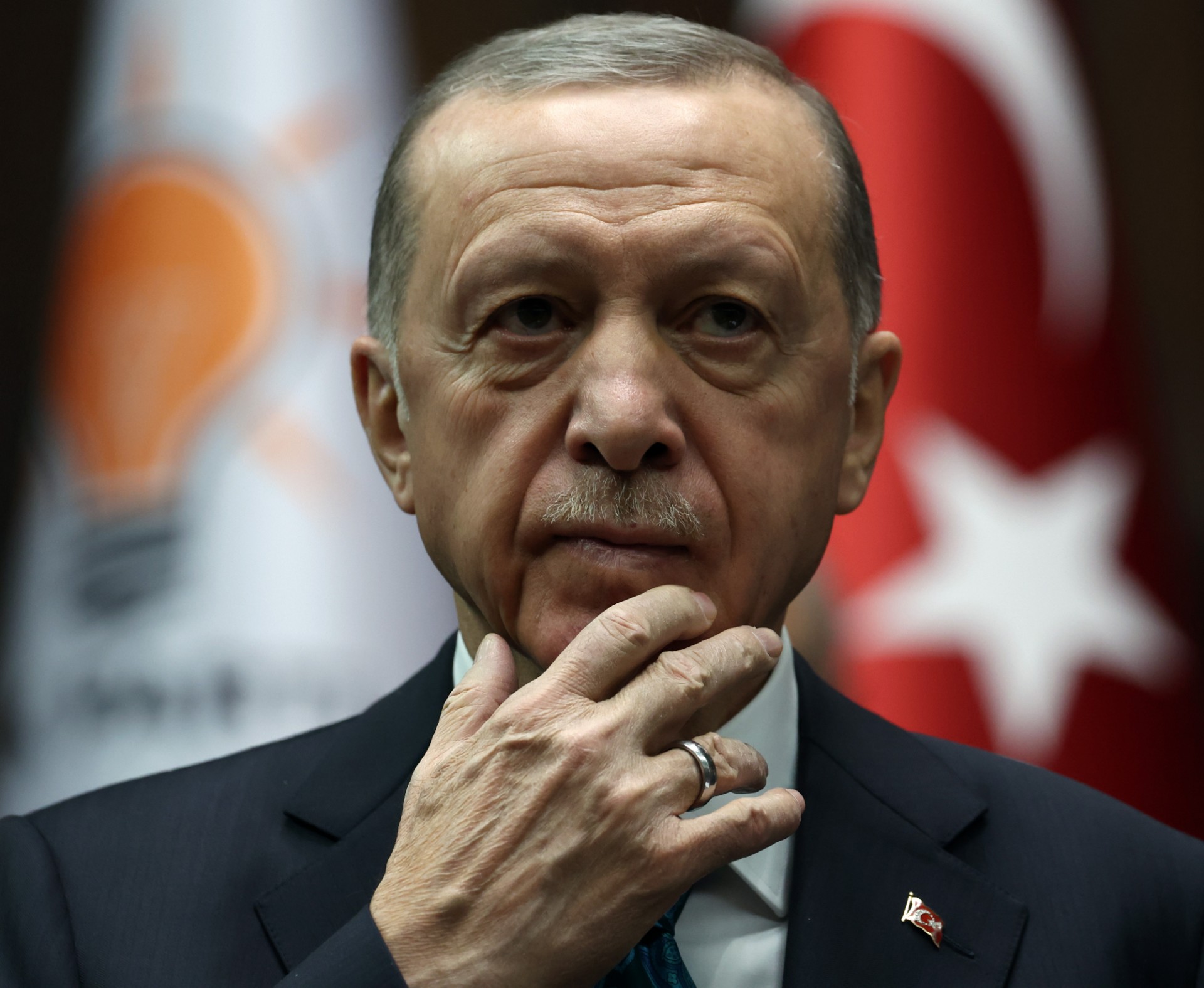When we talk about modern Turkey, one name consistently dominates the conversation: Erdogan. Love him or hate him, there's no denying that this man has left an indelible mark on Turkish politics and society. His leadership has been a rollercoaster ride, filled with controversy, achievements, and challenges. So buckle up, because we're diving deep into the world of Erdogan, exploring who he is, what he's done, and why he matters so much to Turkey and the global stage.
Erdogan isn't just any political figure; he's a polarizing force. Some see him as a visionary leader who has transformed Turkey into an economic powerhouse and restored its regional influence. Others view him as an authoritarian who has curtailed civil liberties and suppressed dissent. But regardless of your perspective, it's impossible to ignore the impact he's had on the nation he's led for over two decades.
This article aims to provide you with a comprehensive understanding of Erdogan, his journey, and his legacy. We'll explore his rise to power, the policies he's implemented, the controversies surrounding him, and what the future might hold for Turkey under his leadership. Whether you're a student of politics, a news junkie, or simply curious about world leaders, this is the article for you.
Table of Contents
- Biography: Erdogan's Early Life and Political Ascent
- Rise to Power: From Mayor to President
- Economic Impact: Erdogan's Influence on Turkey's Economy
- Foreign Policy: Erdogan's Role in Global Affairs
- Domestic Challenges: Controversies and Criticisms
- Education System: Erdogan's Vision for Education
- Healthcare Reforms: Erdogan's Approach to Public Health
- Environmental Policies: Erdogan's Stance on Climate Change
- Media Freedom: The State of Journalism in Erdogan's Turkey
- Future Prospects: What Lies Ahead for Erdogan and Turkey?
Biography: Erdogan's Early Life and Political Ascent
Early Life and Background
Let's rewind the clock and take a look at where it all began for Erdogan. Born on February 26, 1954, in Istanbul, Erdogan grew up in a modest household. His father worked as a coastguard officer, and young Erdogan spent much of his childhood helping out at a tea house. It was during these formative years that he developed a deep sense of discipline and a strong work ethic, qualities that would later define his leadership style.
But Erdogan wasn't just about hard work; he also had a passion for soccer. In fact, he was a promising goalkeeper in his youth and even played for a semi-professional team. However, his love for politics eventually took precedence over his sporting ambitions. By the time he was in his twenties, Erdogan was already involved in political circles, aligning himself with the National Salvation Party, a religiously conservative group.
Political Ascent
Erdogan's political career really took off in the 1990s. In 1994, he was elected Mayor of Istanbul, a position that allowed him to showcase his administrative skills and gain widespread recognition. During his tenure as mayor, Erdogan implemented several successful projects, including the modernization of Istanbul's transportation system. However, his time in office was not without controversy. In 1998, he was sentenced to prison for reciting a poem that was deemed to incite religious hatred, a move that many saw as politically motivated.
After serving his sentence, Erdogan emerged even stronger, co-founding the Justice and Development Party (AKP) in 2001. The AKP quickly gained popularity, and in 2003, Erdogan became Prime Minister of Turkey. His rise to power marked the beginning of a new era in Turkish politics, one characterized by economic growth, increased regional influence, and significant political changes.
Rise to Power: From Mayor to President
Prime Ministerial Years
As Prime Minister, Erdogan wasted no time in implementing his vision for Turkey. He focused on economic reforms, infrastructure development, and improving Turkey's relations with the European Union. Under his leadership, Turkey experienced unprecedented economic growth, with GDP nearly tripling between 2002 and 2013. This economic success helped solidify Erdogan's popularity among the Turkish people.
However, Erdogan's tenure as Prime Minister was not without its challenges. The Gezi Park protests in 2013 were a turning point, highlighting growing discontent with his government's policies and perceived authoritarian tendencies. Despite these challenges, Erdogan remained a dominant force in Turkish politics.
Presidential Ambitions
In 2014, Erdogan made history by becoming Turkey's first directly elected President. This marked a significant shift in Turkey's political landscape, as the presidency was traditionally a ceremonial role. Erdogan, however, was determined to expand the powers of the office, and in 2017, a referendum was held to approve constitutional changes that would transform Turkey into a presidential system. The changes were narrowly approved, granting Erdogan sweeping powers and effectively making him the most powerful leader in Turkey's modern history.
Economic Impact: Erdogan's Influence on Turkey's Economy
Successes and Challenges
One of Erdogan's most notable achievements has been his impact on Turkey's economy. During his time in office, Turkey experienced rapid economic growth, with the country becoming one of the largest economies in the world. Erdogan's economic policies focused on infrastructure development, investment in key sectors, and attracting foreign investment.
However, the economic landscape under Erdogan has not been without its challenges. In recent years, Turkey has faced issues such as high inflation, currency devaluation, and rising unemployment. Critics argue that Erdogan's interventionist approach to monetary policy, including his insistence on keeping interest rates low, has contributed to these problems.
Foreign Policy: Erdogan's Role in Global Affairs
Regional Influence
Erdogan has been a vocal advocate for Turkey's role in the Middle East and beyond. Under his leadership, Turkey has become a key player in regional affairs, often taking a strong stance on issues such as the Syrian conflict, the Israeli-Palestinian conflict, and the situation in Libya. Erdogan's foreign policy has been characterized by a willingness to challenge established powers and assert Turkey's influence on the global stage.
Relations with the West
While Erdogan has sought to strengthen Turkey's ties with the Middle East and other Muslim-majority countries, his relationship with the West has been more complicated. Turkey's membership in NATO and its strategic location make it an important ally for Western powers. However, tensions have arisen over issues such as Turkey's purchase of Russian defense systems and its human rights record.
Domestic Challenges: Controversies and Criticisms
Authoritarian Tendencies
One of the most contentious aspects of Erdogan's leadership has been his perceived authoritarian tendencies. Critics argue that he has cracked down on dissent, suppressed media freedom, and eroded democratic institutions. The aftermath of the 2016 failed coup attempt saw a wave of arrests and dismissals, with thousands of people accused of ties to the alleged plotters.
Supporters of Erdogan, however, argue that these measures were necessary to ensure national security and stability. They point to the fact that Turkey has faced numerous security threats, including terrorism and political instability, during Erdogan's time in office.
Education System: Erdogan's Vision for Education
Reforms and Investments
Erdogan has made education a priority in his government's agenda. He has invested heavily in expanding access to education, particularly in rural areas, and has implemented various reforms aimed at improving the quality of education. These efforts have included increasing funding for schools, building new educational facilities, and introducing new curricula.
However, some critics have raised concerns about the increasing religious content in the education system under Erdogan's leadership. They argue that this could undermine the secular nature of Turkey's education system, a legacy of the country's founder, Mustafa Kemal Ataturk.
Healthcare Reforms: Erdogan's Approach to Public Health
Improving Access and Quality
Erdogan's government has also focused on improving Turkey's healthcare system. Reforms have included expanding access to healthcare services, increasing funding for public hospitals, and introducing universal health insurance. These efforts have helped improve healthcare outcomes and increase access to medical services for millions of Turks.
Despite these achievements, challenges remain. Turkey's healthcare system still faces issues such as overcrowding in hospitals, a shortage of medical personnel, and disparities in access to care between urban and rural areas.
Environmental Policies: Erdogan's Stance on Climate Change
Environmental Challenges
Erdogan's approach to environmental issues has been a mixed bag. On one hand, his government has invested in renewable energy projects and taken steps to address environmental degradation. On the other hand, critics argue that his focus on economic growth has sometimes come at the expense of environmental protection.
Turkey faces significant environmental challenges, including air pollution, deforestation, and water scarcity. Addressing these issues will be crucial for ensuring sustainable development and improving the quality of life for Turkish citizens.
Media Freedom: The State of Journalism in Erdogan's Turkey
Press Freedom Under Threat
One of the most controversial aspects of Erdogan's leadership has been the state of media freedom in Turkey. Critics argue that press freedom has been severely curtailed under his government, with journalists facing arrest, imprisonment, and censorship. According to reports by organizations such as Reporters Without Borders, Turkey ranks poorly in terms of press freedom, with many journalists operating in a climate of fear and intimidation.
Erdogan's supporters counter that these criticisms are exaggerated and that the government has a responsibility to ensure national security and stability. They point to the fact that Turkey has faced numerous security threats, including terrorism and political instability, which they argue justify some restrictions on media freedom.
Future Prospects: What Lies Ahead for Erdogan and Turkey?
Challenges and Opportunities
As Erdogan continues to lead Turkey, he faces a host of challenges and opportunities. Economically, Turkey must address issues such as inflation, currency devaluation, and unemployment to ensure sustainable growth. Politically, Erdogan must navigate a complex domestic and international landscape, balancing the demands of his supporters with the concerns of critics and opponents.
Despite these challenges, there are also opportunities for Turkey under Erdogan's leadership. The country's strategic location, young population, and growing economy position it as a key player in the region and beyond. How Erdogan chooses to address these challenges and opportunities will have a significant impact on Turkey's future and its role in the global community.
In conclusion, Erdogan has been a transformative figure in Turkish politics and society. His leadership has brought about significant changes, both positive and negative, and his legacy will continue to shape Turkey for years to come. As we look to the future, it's clear that Erdogan's Turkey will remain a country of contrasts, challenges, and opportunities.
So, what do you think? Is Erdogan a visionary leader or an authoritarian ruler? Share your thoughts in the comments below and don't forget to check out our other articles on global politics and leaders. Together, let's keep the conversation going!


